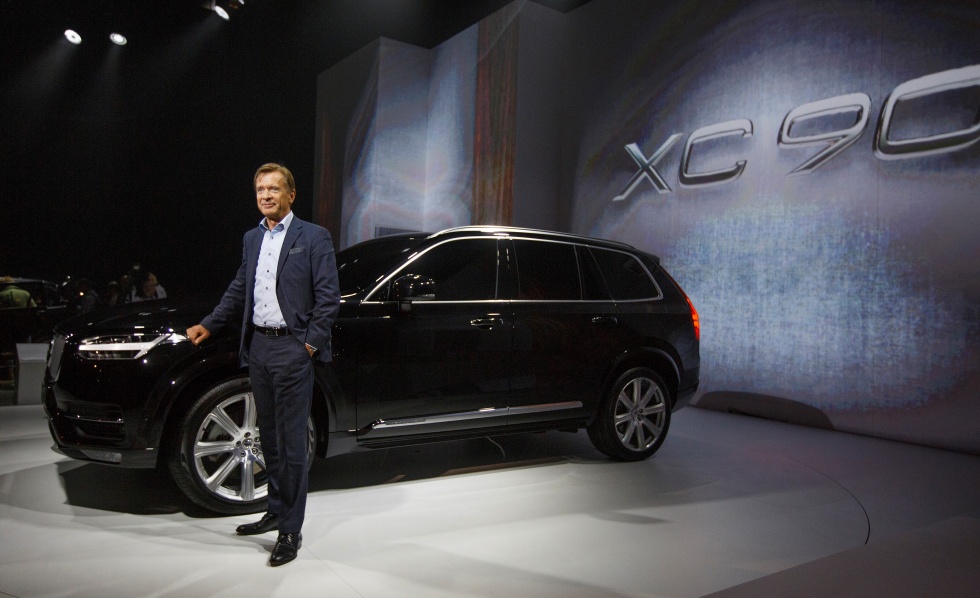 Stuart Nathan
Stuart Nathan
Features editor
Volvo's announcement that it will stop developing purely internal combustion engine vehicles within the next few years is important, but signals a shift for the sector and not a revolution
The automotive sector seems to have reached, if not a tipping point, then certainly an important inflection with the news that Volvo is going to cease developing and making new car models powered solely by internal combustion engines by 2019. After this date, says the Chinese-owned manufacturer, all of its models will be plug-in hybrids, purely electric vehicles or mild hybrids (incapable of purely electric operation but using an electric motor to allow the petrol engine to be turned off when the car is coasting, braking or stopped). But to paraphrase Winston Churchill, this is not the end for the internal combustion engine, nor is it even the beginning of the end, but it might be seen as the end of the beginning for the electric vehicle.

A slightly more appropriate quotation comes from the unlikely source of Doctor Who. When Tom Baker reached the end of his tenure in the title role, he uttered "It's the end, but the moment has been prepared for." If Volvo had announced that it were making only purely electric vehicles, then that would certainly have been the death-knell for the type of car that has dominated roads since the early 20th century. But this is a more subtle shift into a situation that The Engineer has been reporting on for some time. It heralds a change in how internal combustion engines will increasingly be developed and operated. "Increasingly" because this is a trend that has been taking shape for around a decade, if not longer. The primary driver for internal combustion engine development is now not how efficiently it can convert the chemical energy of hydrocarbons into kinetic energy to propel the car on the road, but how efficiently it can be used in a system to convert that chemical energy into electrical energy.
And even then, Volvo's announcement doesn't signal the end of internal combustion as a "prime mover". Two of the three types of car it will now produce connect the internal combustion engine directly to the wheels of the car at least some of the time. But for certain, the trends that we have seen of making engines lighter and more efficient are set to become even more important, while electric motor and battery development, already very important to the automotive sector, will assume an even more critical role in its development processes. Light weighting development for the rest of the vehicle will also become ever more important, and we can expect to see composites and lightweight metals such as aluminium and even magnesium alloys continuing to displace steel in the automotive sector.
It's no surprise that of all the mainstream manufacturers, it was Volvo that made this announcement. For many years, it has been at the forefront of automotive technology, although possibly better known for its safety emphasis than for drivetrain innovation. But its acquisition by Chinese manufacturer Geely in 2010 put a new emphasis on drivetrain.
It is perhaps not fully appreciated that China is the world's largest market for electric cars,with 265,000 vehicles sold there last year (more than twice as many as in all of Europe) and its government recently signalled another shift: away from conventional battery technologies towards hydrogen fuel cell electricity by shifting its funding of R&D. As we reported in our recent cover feature on hydrogen technologies, China plans to bring in fleets of fuel cell powered buses to its cities, starting with relatively small numbers (300 buses are on order, which sounds small but is in fact twice the number of fuel cell buses currently in operation around the world) and will have to establish some sort of hydrogen distribution and refuelling capacity relatively soon to back this up. It will be truly interesting if Volvo also starts developing along this route, joining companies such as Toyota and Hyundai in developing a mass-market, assembly-line-produced fuel cell vehicle; but we have seen no indication of that yet. Battery development will doubtless continue.
Volvo announced that it is to launch five pure electric cars between 2019 and 2021, three of which will be high-performance models via a subsidiary called Polestar launched last month; an interesting move considering the advances in hybrid technologies that have been demonstrated in the performance car market with the recent models from Ferrari, Porsche and McLaren. Volvo of course was known for its sports cars in previous decades, but has not addressed that market for years. It has long been a truism that the performance car market – and other parts in the premium sector – have seen automotive innovations first, before they filter down to mass-market models. It seems that this trend is continuing.
Meanwhile, the best known electric carmaker, Tesla, is delivering the first of its Model 3 vehicles to customers this month, the Model 3 is Tesla's first lower-priced vehicle aimed at more of the mass market than its previous premium models, and Volvo's announcement should certainly be seen as a signal to Tesla (and its charismatic chief executive, Elon Musk) that it is not going to be alone in this market for long. Although, with the number of Toyota Priuses we see passing Engineer Towers every day, Musk – and now Volvo – already have quite stiff competition in this sector.





April 1886: the Brunkebergs tunnel
First ever example of a ground source heat pump?